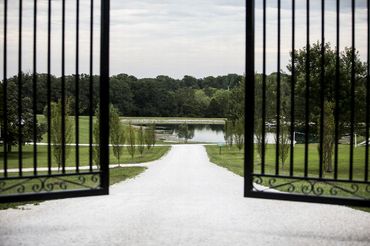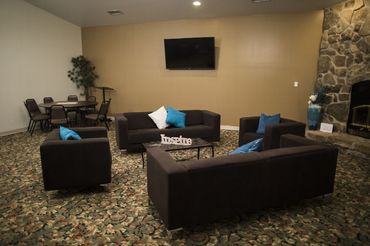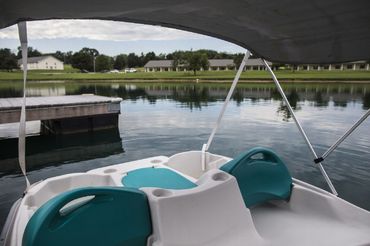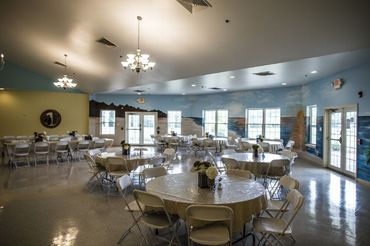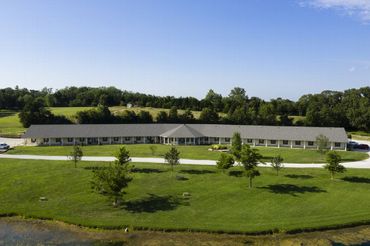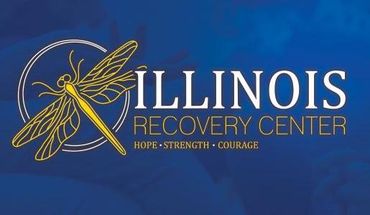
Missouri Inpatient and Outpatient Rehab Centers Near Me for Drug and Alcohol Addiction
Many residents of Missouri who struggle with drug and alcohol misuse may never receive addiction treatment. However, there are several types of treatment programs across the state of Missouri including detox centers, inpatient and outpatient facilities to help you get a fresh start free of substance misuse.
If you are ready to get help for drug or alcohol misuse or addiction, browse the reviews below to get a better idea of what to expect, the services and amenities offered, location and the cost of treatment.
Addiction treatment centers in Missouri
Open to Travel? Check out Top-Rated Options
All Addiction treatment centers in Missouri
Are You Covered For Treatment?
- Kansas City Rehabs
- Saint Louis Rehabs
- Springfield Rehabs
- Saint Charles Rehabs
- Columbia Rehabs
- Cape Girardeau Rehabs
- Poplar Bluff Rehabs
- Saint Joseph Rehabs
- Joplin Rehabs
- Kennett Rehabs
Rehab Insurance Coverage in Missouri
Rehab Centers in Missouri
Information About Rehab in Missouri
Latest Reviews
Latest Reviews of Rehabs in Missouri
Aviary Recovery Center - Kirkwood
Northbound outpatient in St. Louis MO is an outstanding program. They are second to none in my opinion. Very nice facility, and great staff. They saved my life, and I'm forever grateful for that. This is the only out patient I would recommend to anyone. I've been through many programs, this is definitely not my first rodeo. They went above and beyond to help me out. The counselors really care and you can feel that. I seriously can't say enough.
Synergy Recovery Center for Women
I was treated wonderfully during my stay at Synergy. The staff was amazing in everyway. All aspects of recovery were addressed, and the staff is all very respectful and professional.
Compass Health Network, McCambridge Women and Children's Treatment Center
Great facility.
Drug Addiction in Missouri
Substance abuse problems and mental health disorders affect thousands of Missourians every year. Research suggests that addiction is most common among adults in the Kansas City area, and mental health disorders are most common in the southeastern part of the state.2
As states across the country move to combat the national opioid epidemic, Missouri has lagged behind. It is the only state in the nation yet to build a database to monitor prescription drug abuse, despite widespread addiction and mental health problems.1
Addiction by the Numbers
- In 2015, there were about 419,000 people in Missouri struggling with substance addiction. Of those, 17,000 were between the ages of 12 and 17.3
- In 2015, there were 1,066 deaths in Missouri attributed to drug overdose.6
- More Missouri adolescents are addicted to illicit drugs than alcohol (9,000 with past-year drug dependency in 2013-2014 vs. 5,000 with alcohol dependency).2
- Only 7% of Missouri residents with an alcohol use disorder are receiving treatment.2
- More than 110,000 Missouri residents need treatment for drug addiction, but haven’t received it.2
- In a single-day count in 2015, researchers found that 50.7% of adults in Missouri were in treatment for alcohol and drugs, 31.4% were in treatment for a drug problem only, and 17.9% were there for an alcohol problem only.4
How Much Does Rehab Cost?
Just as rehab is not a one-size-fits-all experience, it also does not have one set price. Many different factors influence the cost of the treatment program of your choosing. For instance, luxury programs, which offer upscale amenities and services, cost more than traditional inpatient programs, while outpatient programs are cheaper than inpatient, in most cases.
Recovery programs also vary in their length, typically lasting anywhere from 28 or 30 to 90 days, although they may be longer if necessary. A shorter program will cost less than a longer program.
Another important factor to consider is that of insurance. Seventy-two percent of Missouri facilities accept private insurance, 25% accept Medicare, and 65% accept Medicaid. If you don’t have insurance, there are other ways to pay for your treatment. 92% of recovery programs in Missouri accept self-payment or cash.7
Treatment Options
There are around 265 substance abuse treatment facilities in Missouri.7 About 93% of these treatment facilities offer outpatient services, while 22% offer residential but non-hospital treatment, and 3% offer hospital inpatient treatment.7
The Missouri Division of Behavioral Health runs the Comprehensive Substance Treatment and Rehabilitation (CSTAR) Program, which provides a full continuum of substance abuse treatment.8 There are separate CSTAR programs for women, pregnant women, adolescents, and opioid users that offer specialized services such as day care and medically assisted detox.8 33,965 Missourians received substance abuse treatment through CSTAR programs in 2015.9
Helpful Treatment Resources
Local Resources for Recovering Addicts
- National Suicide Hotline – Call this hotline if you or anyone you know is in crisis. You do not have to be suicidal to call. You will be connected to a local crisis center.
- Kansas City Area Central AA Office – Get information about Alcoholics Anonymous meetings in Kansas City.
- Alcoholics Anonymous St. Louis – Find AA meetings in St. Louis.
- Missouri Division of Behavioral Health – Maintains an up-to-date searchable directory of certified providers of substance abuse and mental health treatment programs.
- Missouri Directory of Adolescent Substance Abuse Treatment Programs – This directory lists programs that provide substance abuse treatment for teens.
- Missouri Directory of Women and Children Substance Abuse Treatment Programs – This directory lists organizations that offer specialized treatment for women-only, pregnant women, and women with children.
- Missouri Directory of Opioid Substance Abuse Treatment Programs – Find programs where you can receive medically assisted treatment for opioid addiction.
Insurance Providers
Learn more about some addiction treatment insurance providers:
Sources
-
- Office of Missouri Governor Eric Greitens. (2017). Governor Eric Greitens Announces Statewide Prescription Drug Monitoring Program.
- Missouri Department of Mental Health. (2016). 2016 Status Report on Missouri’s Substance Use and Mental Health: Data Highlights.
- Missouri Department of Mental Health. (2017). Missouri Intervention and Treatment Programs for Substance Use Disorders.
- Substance Abuse and Mental Health Services Administration. (2015). Behavioral Health Barometer Missouri, Volume 4.
- Centers for Disease Control and Prevention. (2017). 2016 Prescribing Rates.
- Centers for Disease Control and Prevention. (2016). Drug Overdose Death Data: 2015 Deaths.
- National Survey of Substance Abuse Treatment Services. (2015). 2015 State Profile – Missouri.
- Missouri Department of Mental Health. Clinical Treatment and Recovery Services.
- Missouri Department of Mental Health. (2016). Division of Behavioral Health: Substance Use and Compulsive Gambling Admissions.
- Missouri Department of Mental Health. (2016). Regional Offices for Substance Use Services.
